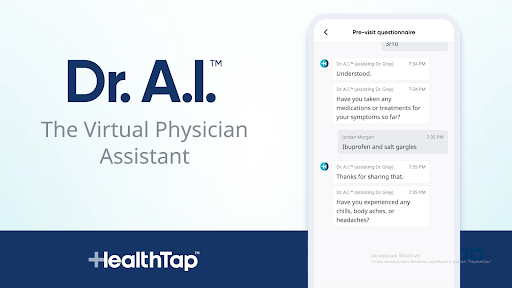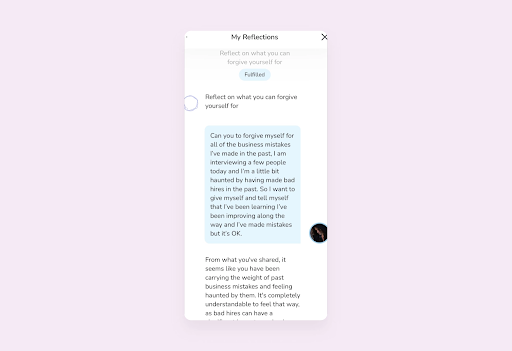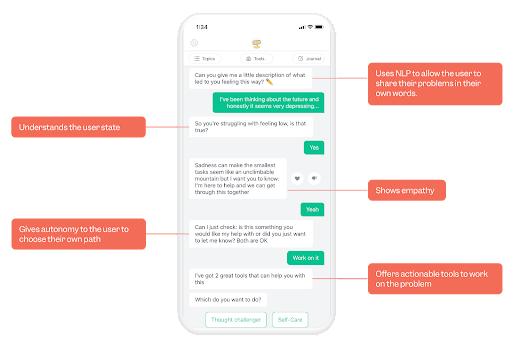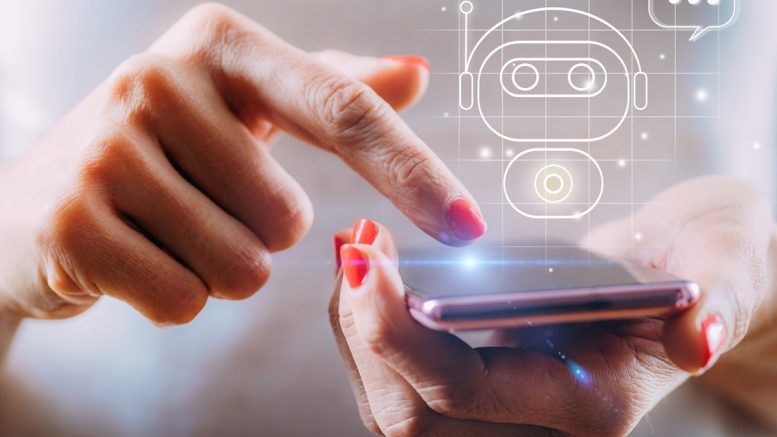The surge in AI innovations, particularly since the latter part of 2022, has been nothing short of a revelation. The tech community, especially in the health sector, is buzzing about the integration of AI tools like ChatGPT which streamline complex processes, boosting efficiency without compromising quality.
These advancements aren’t just for solo practitioners; they’ve revolutionized operations for healthcare entities, staff, and patients alike.
AI’s role in healthcare has been transformative, lightening the load for medical professionals, expanding patient intake, and even saving lives by granting patients access to comprehensive health insights without overburdening their doctors.
Significantly, AI has also become a source of solace, supporting patients emotionally as they navigate concerns about their health.
Our exploration led us to uncover multifaceted applications of AI in digital health. In this article, CEO of Nozomi, Max Mamoyco is excited to share real-world uses of ChatGPT that could revolutionize health offerings.
1. AI-Driven Chatbots and Virtual Health Aides
AI-powered chatbots can undertake initial diagnosis, streamline appointment setting, and tackle common inquiries.
Take the example from the University of North Carolina at Chapel Hill, where a cardiologist put GPT-4 to the test with remarkable outcomes. The AI matched the treatment plans provided by human experts, underscoring its potential.
However, it’s crucial to approach AI with caution and maintain human oversight, as AI systems, like GPT-4, are not immune to biases and errors.
Moreover, AI can serve as a virtual aide, offering symptom insights and health guidance, as demonstrated by Healthily’s Dot™.
Buoy Health’s implementation also stands out, with its AI conducting patient interviews to suggest possible diagnoses, easing the strain on healthcare professionals.

Image | Healthily
2. Patient Education and Engagement
AI, like ChatGPT, can craft interactive materials to enlighten patients about their health, creating training resources and simulating real-life medical scenarios for educational purposes.
Envision a student grappling with academic pressure. An AI chatbot could offer personalized advice on managing stress and self-care.
By tailoring educational content to the user’s learning preferences and cultural context, the AI can significantly boost engagement and understanding.
K Health’s AI converses with patients to inform and guide them, having conducted over 10 million medical chats, fostering trust and engagement.
3. Support for Telemedicine and Behavioral Insights
AI aids healthcare providers by enhancing pre-consultation patient communication.
Contrasting with the initial topic discussed, the advancements in this domain extend even deeper, incorporating AI that transcends mere basic recommendations and symptom-based disease identification. It now also mirrors human interactions, offering a more nuanced and engaging user experience.
Going beyond basic advice, AI like HealthTap’s Dr.A.I.™, captures comprehensive patient information through a conversational interface and presents it succinctly to doctors, optimizing care delivery.
Utilizing GPT-4 to augment patient intake discussions, HealthTap’s physicians can now dedicate increased time to providing personalized treatment.
Don’t forget. AI also aids in clinical decision-making by offering suggestions based on patient data and standard protocols. All of the above helps increase the throughput of doctors and the number of patients we were able to assist.

Image | Health Tap
4. Mental Health Assistance
AI has emerged as a pioneering force in mental health by offering foundational support, presenting coping mechanisms, and directing users to professional assistance when necessary, showcasing a broad spectrum of uses.
- Prompt emotional assistance: AI chatbots are programmed to provide instant support for those grappling with emotional distress, be it anxiety, workplace stress, or feelings of seclusion. As an example, in moments of panic, a chatbot can step in to offer real-time strategies for symptom management until one can obtain professional aid.
The support extends beyond immediate crises, with chatbots offering continual emotional reinforcement via routine engagements or affirmations. They can recommend targeted relaxation techniques or mindfulness exercises to help individuals balance their emotional state.
For instance, if you engage in a conversation with ChatGPT regarding personal health challenges, you’ll notice its capacity to offer empathetic responses and truly supportive guidance. Within our sector, we’ve seen the emergence of a sophisticated mental health app, developed in partnership with Microshift, which has launched a feature that functions as an AI-driven coaching chat.
This newly introduced function operates akin to the GPT interaction described previously, yet it is tailored more specifically and is seamlessly woven into the app’s comprehensive environment.

Image | Microshift
You can see more about how we’ve built a mental health platform for the Swedish startup here.
- Behavioral therapy via AI: for individuals navigating the challenges of anxiety or depression, AI chatbots can be pivotal by facilitating behavioral therapy modalities like muscle relaxation routines to soothe and reduce stress.
A chatbot might also encompass a full array of behavioral therapy tasks, from confronting cognitive distortions to gradual exposure exercises, thereby equipping users with the means to steadily overcome their struggles. The chatbot’s role extends to providing tailored advice and mentorship for integrating these practices into everyday life.

Image | Woebot
- Crisis management: in critical mental health scenarios, AI chatbots can act swiftly to provide specialized assistance, including safety planning and calming techniques for those confronting severe emotional distress or life-threatening situations.
These AI systems can serve as a bridge to immediate professional help, facilitating access to emergency services or online counseling support, ensuring individuals in crisis can navigate to safety and receive the help they need promptly.
- Social interaction enhancement: AI chatbots can also be tailored to support those experiencing social isolation by assisting them in honing their social skills and offering constructive interaction feedback.
By fostering virtual communities for those with shared experiences, AI chatbots can facilitate social engagement, providing a safe space for individuals to connect and practice social dynamics, furthering their ability to navigate social situations with greater confidence.
For instance, Woebot leverages AI to offer behavioral therapy and mindfulness sessions, aiding individuals in managing anxiety and depressive symptoms.
5. Health Monitoring and Personal Tracking
Lastly, AI stands at the forefront of revolutionizing health monitoring by enabling seamless interactions between patients and digital health trackers, delivering instant insights and guidance.
An AI chatbot can track a user’s mental health trajectory, offering custom recommendations to those with conditions like bipolar disorder, ensuring they stay attuned to their mood fluctuations and treatment adherence.
Leveraging advanced machine learning, AI can dissect health data to provide personalized health optimization strategies, periodically updating users on their progress and encouraging them to set and meet health objectives.
Although this sector is nascent, with a few examples harnessing GPT specifically, projects like OmniAGI.ai (currently in development) are forging new paths. OmniAGI.ai is committed to evolving Large Language Models (LLMs) and has introduced the OmniSmart AI Agent, a sophisticated system designed to aggregate and refine data from various health determinants, wearables, and patient self-reports.
The goal is to align this data with electronic health records, thereby enabling healthcare professionals to make more precise diagnoses and monitor patient well-being effectively.
Patient self-reports are particularly insightful, offering a direct window into the patient’s perspective on their health status, free from any clinical interpretation. These insights are critical for a comprehensive assessment of various health facets, and they align with the overarching aim of enhancing patient outcomes.
Conclusion
In concluding remarks, as ChatGPT reshapes the landscape of health and care by introducing cutting-edge AI to our daily lives, it is imperative to navigate this evolving terrain with careful consideration.
The integration of advanced AI offers opportunities for tailored care and streamlined patient assistance, but it also presents challenges such as AI paternalism and biases in data. Striking a balance between the innovative capabilities of AI and ethical considerations, along with adherence to regulatory standards, is paramount. Embracing the ongoing AI revolution requires a steadfast commitment to enhancing human expertise through AI, with a steadfast dedication to delivering fair and empathetic healthcare to everyone.




